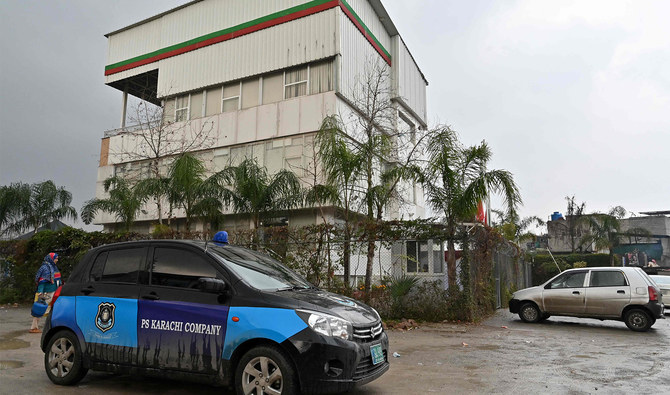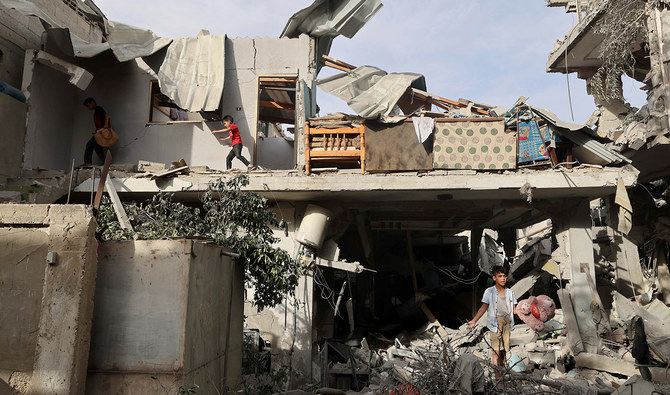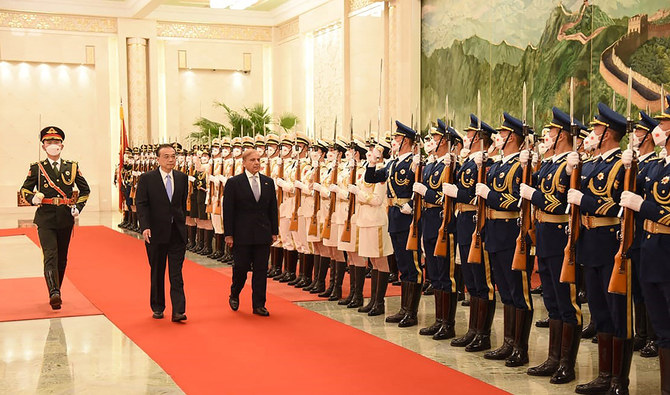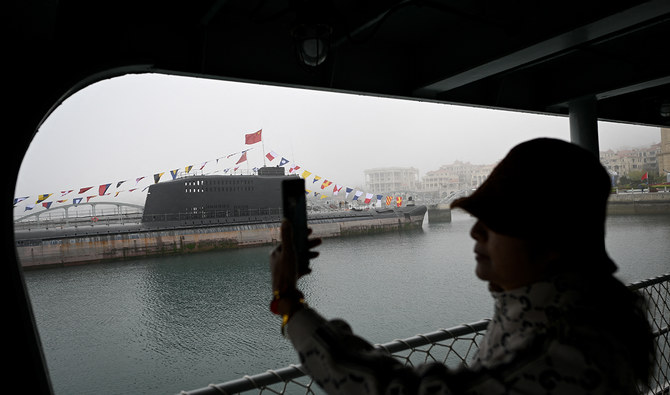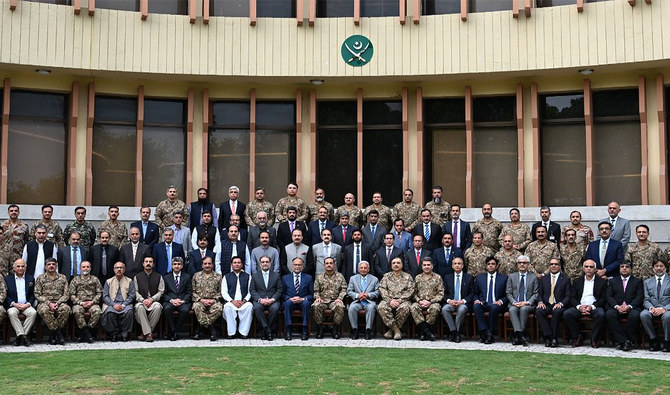ISLAMABAD: Former prime minister Imran Khan’s Pakistan Tehreek-e-Insaf (PTI) party said on Wednesday it would be winning majority seats in the upcoming elections on Feb. 8 and had a “bright political future,” despite a state crackdown on its supporters and recent convictions of its leader.
Khan, who founded the party in 1996 with an aim to bring social justice to the country, has been in jail since August last year after being sentenced to three-years in prison by the country’s election regulator for failing to declare assets gained from the sale of gifts he received as PM from 2018-2022.
This week, he was handed a ten-year jail term in a case filed against him for leaking contents of a secret diplomatic cable from the United States (US) to the public. Separately on Wednesday, he was sentenced to 14 years in prison for profiting from the sale of state gifts he received while in office.
Khan’s PTI contested the first general elections in 1997 but failed to win even a single seat and in 2002 elections, only Khan himself won from his home constituency of Mianwali in the Punjab province. The party boycotted the 2008 general elections held under the rule of then military dictator General Pervez Musharraf. The PTI’s popularity started to peak across Pakistan from 2011 onwards, following Khan’s vehement opposition to the US drone strikes in the country’s tribal regions bordering Afghanistan and his anti-drone attacks march.
In the 2013 general elections, the PTI emerged as a major party across the country with over 7.5 million votes, ranking second by number of votes and third by number of seats won in national and provincial assemblies. The party also managed to form its government in the northwestern Khyber Pakhtunkhwa (KP) province after winning majority in 2013 polls.
The cricket star-turned-politician succeeded in capturing imagination of the public through a historic 126-day sit-in in 2014 against the then government led by prime minister Nawaz Sharif over alleged irregularities in 2013 polls. His intensive campaign in 2018 elections won him 149 seats in the 342-member National Assembly, lower house of Pakistan parliament, and he became the country’s prime minister with the help of allied parties.
However, Khan’s rule lasted for around four years as he was ousted in a parliamentary vote of no-confidence in April 2022. He accused the country’s powerful military for being behind his ouster, while referring to a diplomatic cable from the US as a “conspiracy” against his government. Both the military and Washington have denied the allegation.
In the subsequent months, Khan led massive public rallies to mobilize people and his party won 28 out of 37 national and provincial by-elections since his ouster. To seek early national elections, his legislators resigned from the National Assembly shortly after his ouster and his party dissolved provincial assemblies in Punjab and KP in January 2023. But the then coalition government led by prime minister Shehbaz Sharif refused to hold the national elections.
During Shehbaz’s tenure, several criminal cases were filed against Khan as he waged an unprecedented campaign of defiance against the military and the government. The 71-year-old ex-premier has been booked in over 170 cases with charges against him ranging from terrorism to blasphemy, and sedition to corruption. A state crackdown began against his supporters and members of his party following violent demonstrations against his brief arrest on May 9 that has seen several senior PTI figures defect, be arrested or driven underground.
In another turn of events last month, Khan’s party was barred from taking part in Feb 8 elections after the Supreme Court deprived it of its iconic election symbol, a cricket bat. All its candidates are now contesting the polls as independents, but recent public surveys show that Khan remains the country’s most popular leader.
“We will come out of all this … these convictions [of Khan] cannot stand scrutiny of the higher courts,” Raoof Hassan, the PTI information secretary, told Arab News. “We have a bright political future despite all the state crackdowns against our supporters and leaders as we will be winning majority seats in the February 8 polls.”
He said the party has a strategy in place to keep all its winning candidates united in the assemblies under the banner of the PTI.
“We know exactly how to deal with it all,” he said.
Political analysts say the PTI has a “bleak” political future in the short term as its leaders were in jail and the party was “crushed” ahead of the national elections.
“The PTI, as a party, is out of elections now,” Amir Zia, a political analyst, told Arab News.
“Even if some PTI-backed candidates win the elections, they will be influenced by other parties to join their ranks to form the government.”
Zia said young voters were still supporting Khan and his party as they had a popular support base in urban centers of the country.
“The PTI and its leadership are going through a difficult phase, and they should act wisely to come out of all this,” he said.
Dr. Hassan Askari Rizvi, a political analyst, said the PTI had suffered a ‘serious damage’ in the short term after the state crackdown against its leaders and workers, but it could recover in the longer run as other parties did in the past.
“Only time will tell if the people would come out in large numbers to vote for the PTI on Feb. 8 as the state has tried to infuse fear and intimidation among the public through recent convictions of Imran Khan,” he added.



